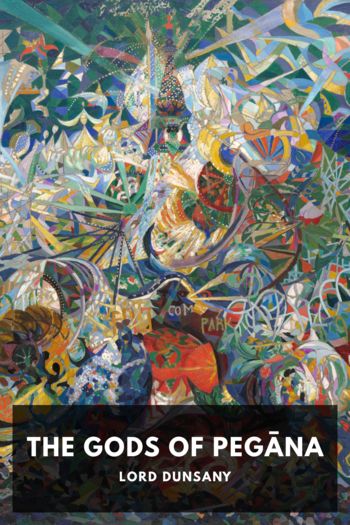White Fang Jack London (good books to read for beginners TXT) 📖

- Author: Jack London
Book online «White Fang Jack London (good books to read for beginners TXT) 📖». Author Jack London
After each repulse, when the old wolf sheered abruptly away from the sharp-toothed object of his desire, he shouldered against a young three-year-old that ran on his blind right side. This young wolf had attained his full size; and, considering the weak and famished condition of the pack, he possessed more than the average vigour and spirit. Nevertheless, he ran with his head even with the shoulder of his one-eyed elder. When he ventured to run abreast of the older wolf (which was seldom), a snarl and a snap sent him back even with the shoulder again. Sometimes, however, he dropped cautiously and slowly behind and edged in between the old leader and the she-wolf. This was doubly resented, even triply resented. When she snarled her displeasure, the old leader would whirl on the three-year-old. Sometimes she whirled with him. And sometimes the young leader on the left whirled, too.
At such times, confronted by three sets of savage teeth, the young wolf stopped precipitately, throwing himself back on his haunches, with forelegs stiff, mouth menacing, and mane bristling. This confusion in the front of the moving pack always caused confusion in the rear. The wolves behind collided with the young wolf and expressed their displeasure by administering sharp nips on his hind legs and flanks. He was laying up trouble for himself, for lack of food and short tempers went together; but with the boundless faith of youth he persisted in repeating the manoeuvre every little while, though it never succeeded in gaining anything for him but discomfiture.
Had there been food, lovemaking and fighting would have gone on apace, and the pack-formation would have been broken up. But the situation of the pack was desperate. It was lean with longstanding hunger. It ran below its ordinary speed. At the rear limped the weak members, the very young and the very old. At the front were the strongest. Yet all were more like skeletons than full-bodied wolves. Nevertheless, with the exception of the ones that limped, the movements of the animals were effortless and tireless. Their stringy muscles seemed founts of inexhaustible energy. Behind every steel-like contraction of a muscle, lay another steel-like contraction, and another, and another, apparently without end.
They ran many miles that day. They ran through the night. And the next day found them still running. They were running over the surface of a world frozen and dead. No life stirred. They alone moved through the vast inertness. They alone were alive, and they sought for other things that were alive in order that they might devour them and continue to live.
They crossed low divides and ranged a dozen small streams in a lower-lying country before their quest was rewarded. Then they came upon moose. It was a big bull they first found. Here was meat and life, and it was guarded by no mysterious fires nor flying missiles of flame. Splay hoofs and palmated antlers they knew, and they flung their customary patience and caution to the wind. It was a brief fight and fierce. The big bull was beset on every side. He ripped them open or split their skulls with shrewdly driven blows of his great hoofs. He crushed them and broke them on his large horns. He stamped them into the snow under him in the wallowing struggle. But he was foredoomed, and he went down with the she-wolf tearing savagely at his throat, and with other teeth fixed everywhere upon him, devouring him alive, before ever his last struggles ceased or his last damage had been wrought.
There was food in plenty. The bull weighed over eight hundred pounds—fully twenty pounds of meat per mouth for the forty-odd wolves of the pack. But if they could fast prodigiously, they could feed prodigiously, and soon a few scattered bones were all that remained of the splendid live brute that had faced the pack a few hours before.
There was now much resting and sleeping. With full stomachs, bickering and quarrelling began among the younger males, and this continued through the few days that followed before the breaking-up of the pack. The famine was over. The wolves were now in the country of game, and though they still hunted in pack, they hunted more cautiously, cutting out heavy cows or crippled old bulls from the small moose-herds they ran across.
There came a day, in this land of plenty, when the wolf-pack split in half and went in different directions. The she-wolf, the young leader on her left, and the one-eyed elder on her right, led their half of the pack down to the Mackenzie River and across into the lake country to the east. Each day this remnant of the pack dwindled. Two by two, male and female, the wolves were deserting. Occasionally a solitary male was driven out by the sharp teeth of his rivals. In the end there remained only four: the she-wolf, the young leader, the one-eyed one, and the ambitious three-year-old.
The she-wolf had by now developed a ferocious temper. Her three suitors all bore the marks of her teeth. Yet they never replied in kind, never defended themselves against her.





Comments (0)